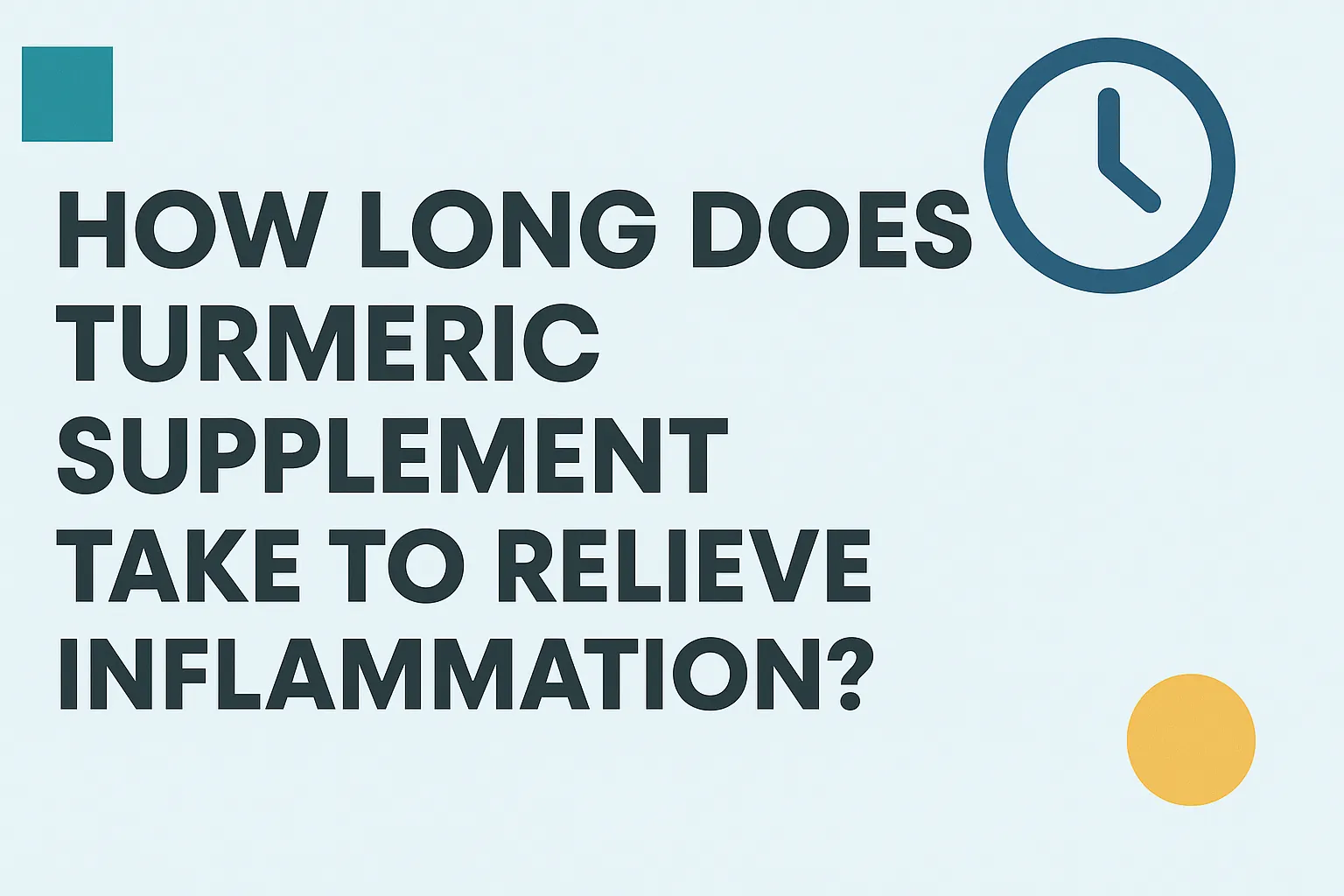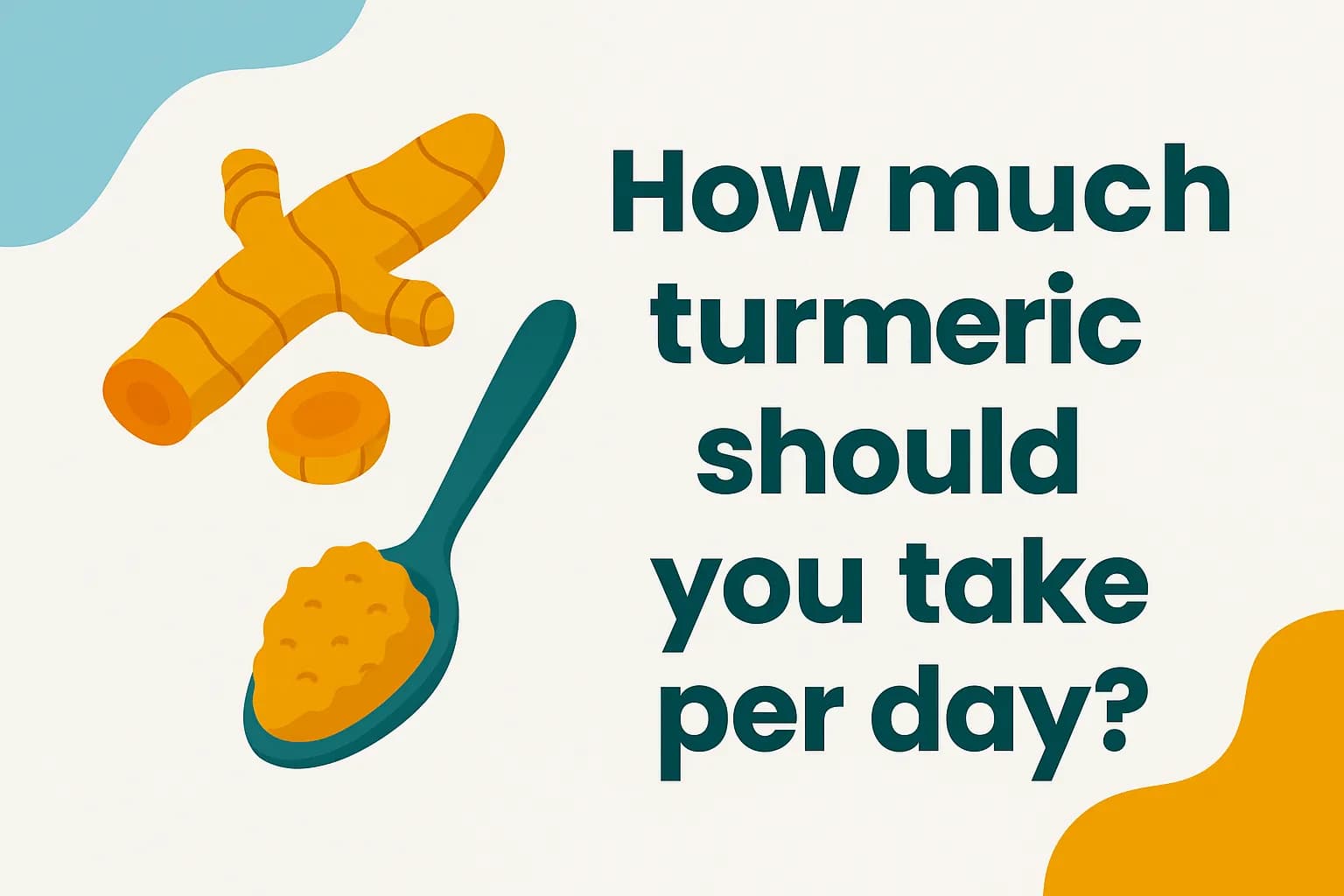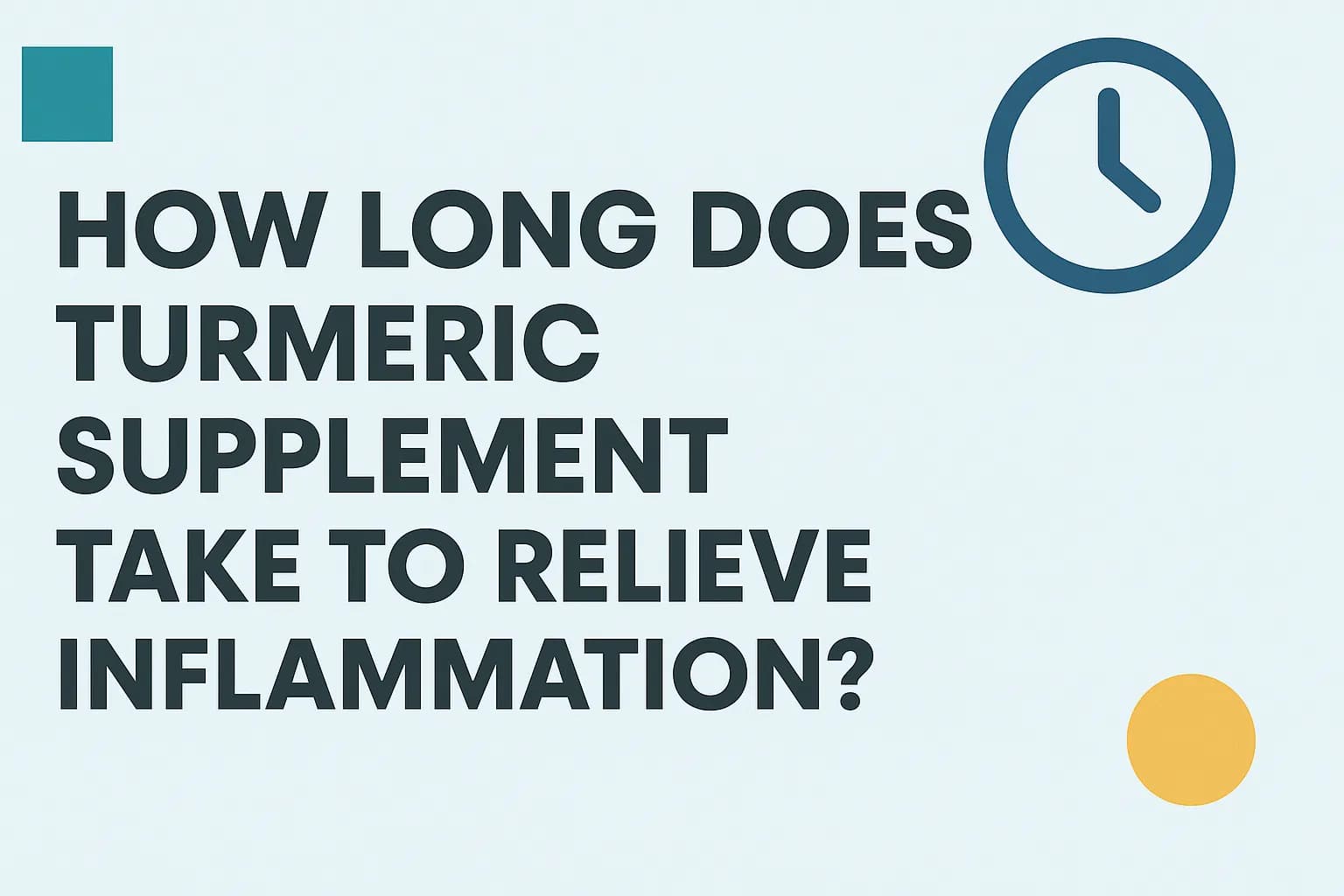How long does turmeric supplement take to relieve inflammation?

Turmeric contains curcuminoids, primarily curcumin, which have anti‑inflammatory effects. To see benefits for inflammatory conditions like arthritis, it’s best to use a high‑quality turmeric extract standardized to contain up to 95% curcumin. Look for formulations with black pepper (piperine), phospholipids, antioxidants, or nanoparticles to enhance absorption.
Dosage guidelines
Most clinical studies use 500 mg to 2,000 mg of turmeric extract per day. (Remember, turmeric powder and curcumin extract are not identical; curcumin dosing is typically up to 3 mg per kilogram of body weight per day.)
Onset of anti‑inflammatory effects
If you take an appropriate daily dose of turmeric or curcumin supplement, you can expect to notice a reduction in inflammation, joint pain, and stiffness within:
- 4 to 8 weeks of consistent daily use
Results may vary based on individual factors such as baseline inflammation, overall health, and supplement quality.
Other natural anti‑inflammatories
Several supplements may also help lower inflammation:
- Omega‑3 fatty acids
- S‑adenosylmethionine (SAM‑e)
- Zinc
- Green tea extract
- Capsaicin
- Garlic
- Vitamin C and Vitamin D
- Resveratrol
- Spirulina
- Bromelain
Shop Medications
Health benefits of turmeric
- Reduces inflammation by lowering key enzymes
- Neutralizes free radicals as an antioxidant
- Supports brain function and may help prevent Alzheimer’s
- Improves blood vessel health and lowers cholesterol
- Slows growth and spread of certain cancers
- Relieves joint pain in osteoarthritis
- Aids digestion and reduces bloating
- Improves skin conditions like acne and eczema
- May have antidepressant effects
- Boosts immune system function
Side effects of turmeric
- Gastrointestinal upset: nausea, diarrhea, indigestion
- Increased bleeding risk with anticoagulants
- Caution in gallbladder disease and kidney stones
- Reduced iron absorption
- Rare allergic reactions and liver toxicity at very high doses
- Hypoglycemia when combined with diabetes medications
- Hormonal effects in estrogen‑sensitive conditions
Drug interactions
- Blood thinners (warfarin, aspirin, clopidogrel): increased bleeding risk
- Acid‑reducing medications (omeprazole, ranitidine): possible interference
- Diabetes medications: risk of low blood sugar
Who should avoid turmeric?
Consult your healthcare provider before use if you:
- Are pregnant or breastfeeding
- Have gallbladder or kidney problems
- Have a bleeding disorder or take blood thinners
- Have diabetes or iron deficiency
Sources
- Stohs SJ, Chen O, Ray SD, et al. Highly Bioavailable Forms of Curcumin: A Systematic Review. Molecules. 2020;25(6):1397.
- El‑Saadony MT, et al. Impacts of turmeric and curcumin on human health: A comprehensive review. Frontiers in Nutrition. Accessed Aug. 26, 2024.
- Akbari M, et al. Curcumin and weight loss in metabolic syndrome: A meta‑analysis. 2019.
- Tayyem RF, et al. Curcumin content of turmeric and curry powders. Nutrition and Cancer. 2006.
- Lopresti AL, et al. Effects of a curcumin extract on knee osteoarthritis pain. Nutrients. 2022.
- Ahmad RS, et al. Biochemistry, safety, and clinical applications of turmeric: A mechanistic review. 2020.





